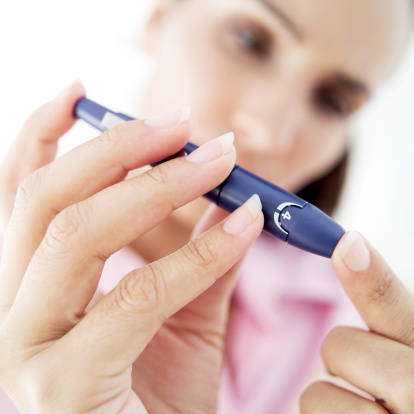Diabetes & Heart Health Go Hand in Hand
Over 26 million Americans have diabetes. If you are one of these people, you have a higher risk of heart disease and heart attack than people without diabetes. Those with diabetes should, therefore, put a heart-healthy lifestyle at the top of their to-do list.
To get started on your journey, think about your cholesterol numbers, what you eat, how much you weigh, how active you are, and if there is a medicine that could help your heart. Once you know where you are starting, you can begin moving forward on the path to a healthy heart.
- Know your numbers. When you have diabetes, you should always know your numbers. One number you should know is your A1C level, which tells you what your average blood glucose levels have been over the past three months. A healthy A1C level if you have diabetes is below 7 percent. To keep your A1C in a safe range, you should keep track of your blood glucose levels every day. Someone from your healthcare team will let you know how often you should check your blood glucose. How often you need to check depends on your treatment plan, so not every person with diabetes will need to check their blood glucose the same number of times each day..
Other numbers you should keep track of are:
- LDL cholesterol
Known as the “bad” cholesterol, LDL can build up in your blood vessels and put you at risk for having a heart attack or stroke. Since the cholesterol guidelines have recently changed, your healthcare provider will let you know if you should be concerned about your LDL number or not.
- HDL cholesterol
Known as the “good” cholesterol, HDL can help unclog blood vessels and lower your risk of heart disease.
Goal: Above 40 mg/dL for men; above 50 mg/dL for women.
- Triglycerides
Also called blood fats, triglycerides can raise your risk for heart disease.
Goal: less than 150 mg/dL.
If you don’t know your numbers, you should ask your healthcare provider at your next visit. Write down your results so that you have a record and can track your progress. Your cholesterol numbers should be checked at least once a year, or more often if they are not at your target level.
- Choose the right foods. A heart-healthy eating plan is also good for your diabetes. This does not mean you have to give up all the foods you like to eat! It just means that you might have to eat smaller portions or eat them less often. If you are not sure how to get started, a dietician can work with you to create a meal plan that’s based on your lifestyle and the foods you like. Your meal plan can help you better manage both your blood glucose and your cholesterol levels.
- Stay at a healthy weight. By staying at a healthy weight, you’ll be helping to keep both your blood glucose and cholesterol numbers in check. Losing just 10 to 20 pounds is enough to help you lower your risk for heart disease.
- Get moving. Being active can boost your HDL level, lower your LDL level, and help you maintain your blood glucose levels. Best of all, it can also help you stay at a healthy weight. Every bit of movement counts as exercise. It is best to choose something that you enjoy so that you will not see being active as work. Try to be active for at least 30 minutes on most days of the week, and check with your healthcare provider before starting any exercise program to be sure that it’s safe for you.
- Think about taking medicines. You might need to change your lifestyle to take care of your heart and blood vessels. Your body may need medicine to lower cholesterol levels, just as your diabetes may need some help from medicines to keep your blood glucose under control. If you cannot lower your LDL by eating well, exercising and maintaining a healthy weight, then you may need a medicine to help you. The most common types of medicine to help lower LDL cholesterol are a group of medicines called “statins.”. There are other safe cholesterol-lowering medicines, too. Be sure to talk with your healthcare provider if you have questions about these or any of the other medicines you take.












